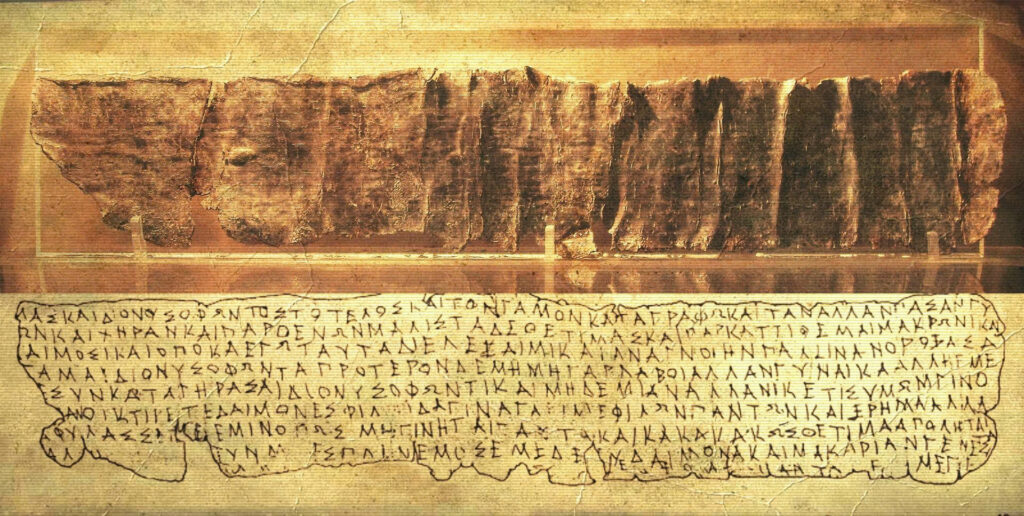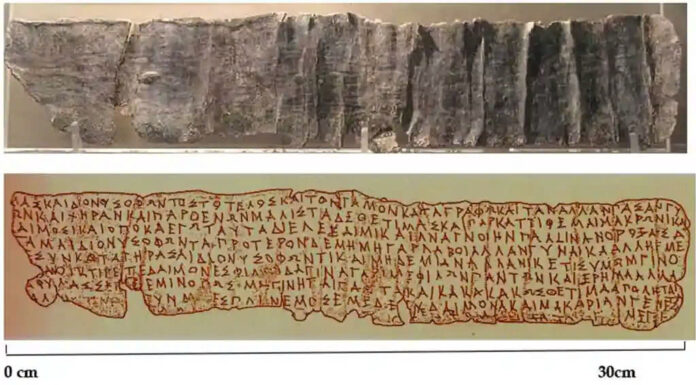A Magical Window into the Past

In 1986, archaeologists unearthed a remarkable artifact in Pella, the ancient capital of Macedon. This lead scroll, known as the Pella curse tablet, dates back to 375-350 BC and contains a spell that has captivated historians and linguists alike. More than just a glimpse into ancient magical practices, this tablet has become a key to unlocking the linguistic secrets of ancient Macedonia.
A Tale of Love and Magic

The tablet tells a poignant story of unrequited love. A woman named Dagina inscribed a desperate plea to the supernatural, attempting to bind her former lover Dionysophon and prevent him from marrying another woman, Thetima. The spell invokes “Makron and the demons” to ensure Dionysophon would remain unmarried unless Dagina herself released him from the enchantment.
Linguistic Revelations
The Doric Dialect Debate
What makes the Pella curse tablet truly exceptional is its language. Written in a distinct Doric Greek idiom, it provides compelling evidence that Macedonia had its own indigenous Doric Greek dialect. This challenges previous theories suggesting that Doric Greek was imported into the region.
Clues from the Common Folk
The Northwest Greek dialect used in the tablet is believed to be typical of the lower-class residents of Pella. This inference is drawn from the writer’s vocabulary and belief in magic, though it’s worth noting that magical practices were not confined to any particular social class in ancient Greece.
Historical Significance
Redefining Ancient Macedonian Language

Scholars like Olivier Masson and James L. O’Neil argue that the tablet supports the view of Macedonian as a Northwest Greek dialect, specifically Doric. This aligns with other Macedonian inscriptions and sheds light on the region’s linguistic evolution from native Macedonian to Koine Greek.
A Living Link to the Past
The Pella curse tablet is more than just an ancient relic; it’s a vibrant connection to the people of ancient Macedonia. Through its unique dialect, we gain insights into their beliefs, social structures, and daily lives. As we continue to study this fascinating artifact, we unravel not just a language, but the very essence of an ancient culture that has profoundly shaped our understanding of history.

